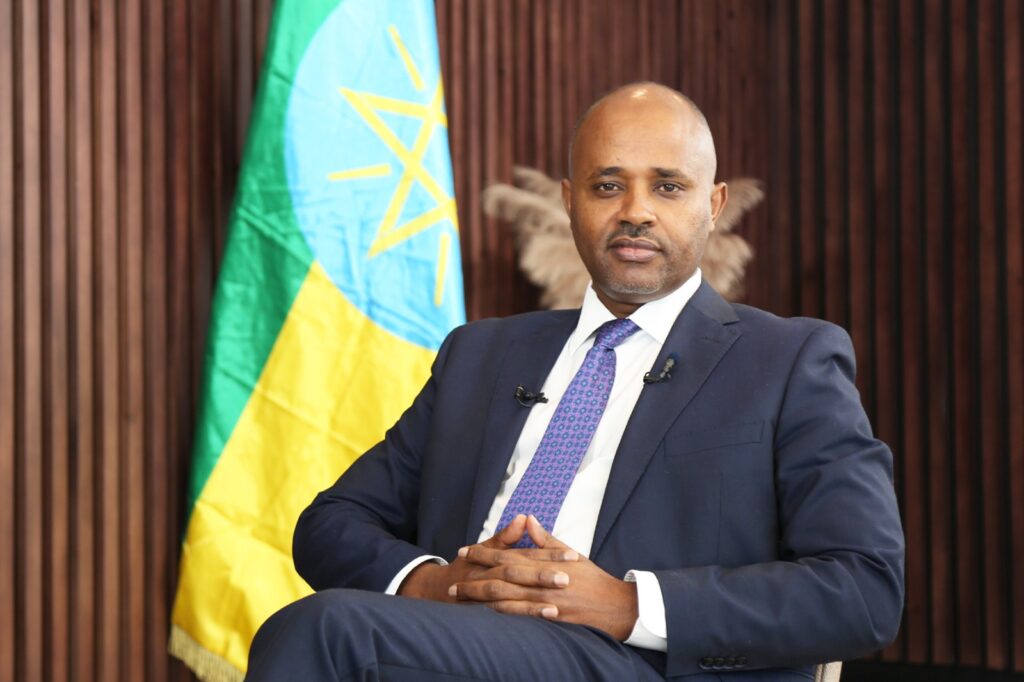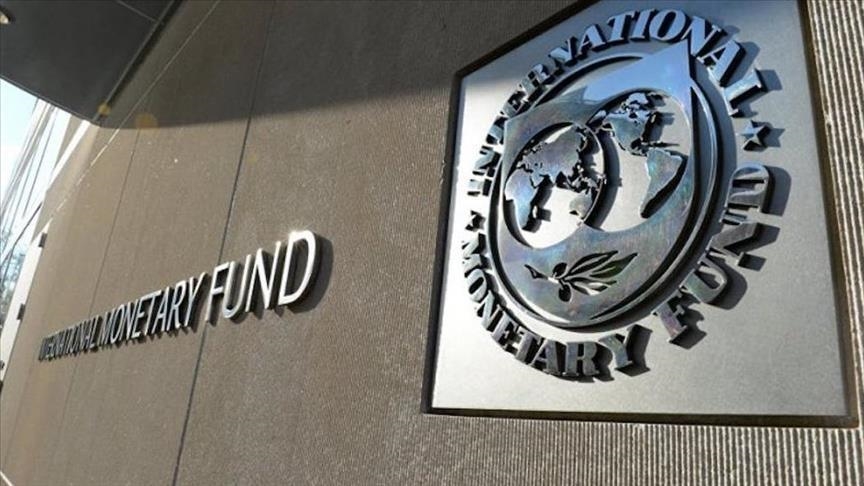Ethiopia is poised to secure a preliminary agreement on the third review of its $3.4 billion loan programme with the International Monetary Fund (IMF) early this week, according to State Finance Minister Eyob Tekalign. Eyob revealed that formal debt negotiations with bondholders are also anticipated to commence during the summer.
In July last year, the East African country entered into a four-year, $3.4 billion arrangement with the IMF, embarking on sweeping reforms that include floating its national currency, the birr, and pursuing critical debt restructuring.
During the IMF and World Bank Group spring meetings in Washington, Eyob shared that he met with IMF Managing Director Kristalina Georgieva and other IMF staff to discuss Ethiopia’s progress.
“They are very much pleased with how the program is going. The results we’ve seen now were pleasant surprises, because we’ve over-achieved in many areas, whether it’s in reserve accumulation, in inflationary trends or in export growth.”
Eyob Tekalign

Eyob expressed optimism that the IMF’s executive board would approve the third review by June, which would pave the way for the next disbursement under the loan arrangement.
He also engaged with some holders of Ethiopia’s lone $1 billion Eurobond on the sidelines of the Washington meetings.
These initial talks were described as productive, with formal negotiations aimed at reshaping the debt profile expected to begin over the summer months.“We cannot get into substantive discussions, because they are waiting to see the latest DSA macro tables from the fund,” Eyob explained, referencing the IMF’s crucial debt sustainability analysis.
In March, Ethiopia reached a draft agreement with its official creditors to restructure $8.4 billion of debt. However, discussions with bondholders remain contentious. The two sides are divided over whether Ethiopia’s challenges are liquidity-based — merely requiring more time for payments — or solvency-related, which could necessitate debt reductions, commonly known as haircuts.
The draft agreement with official creditors primarily focuses on extending payment deadlines and reducing interest rates during the IMF programme period, avoiding outright principal reductions.
Debt Strategy Prioritizes Sustainable Development Goals
Eyob emphasized that the country’s debt strategy must align with the principle of comparability of treatment among all creditors.
“Haircut or not, I think this is sometimes an unnecessary debate. The whole exercise is to help the country sustainably finance its development – that’s the whole idea behind the debt treatment.”
Eyob Tekalign
Ethiopia initially applied for external debt restructuring under the G20’s Common Framework in 2021. Despite these efforts, the country defaulted on its Eurobond in December 2023, intensifying the urgency to resolve its debt issues.
In parallel, Eyob reported positive developments regarding concessional financing from China’s major trade policy institutions, including the Export-Import Bank of China and the China Development Bank. These funds are expected to support major infrastructure projects, notably the expansion of Addis Ababa’s city rail system and airport facilities.
Further strengthening Ethiopia’s external financing prospects, Eyob noted that he also met with officials from the U.S. International Development Finance Corporation during his Washington visit.
“We understand that they see us as one of the priority countries, so we should be able to see more investment from the U.S. side,” he said. Discussions with the U.S. agency reportedly focused on securing direct project financing and guarantees across various sectors, including energy development.
As Ethiopia moves to solidify the IMF loan review and lay the groundwork for formal bondholder negotiations, its reform agenda appears firmly on course. The coming months will be critical in determining how successfully the country can navigate the complexities of restructuring its debts while advancing key development projects.
READ ALSO: GBA’s U-Turn On CJ Suspension Questioned




















